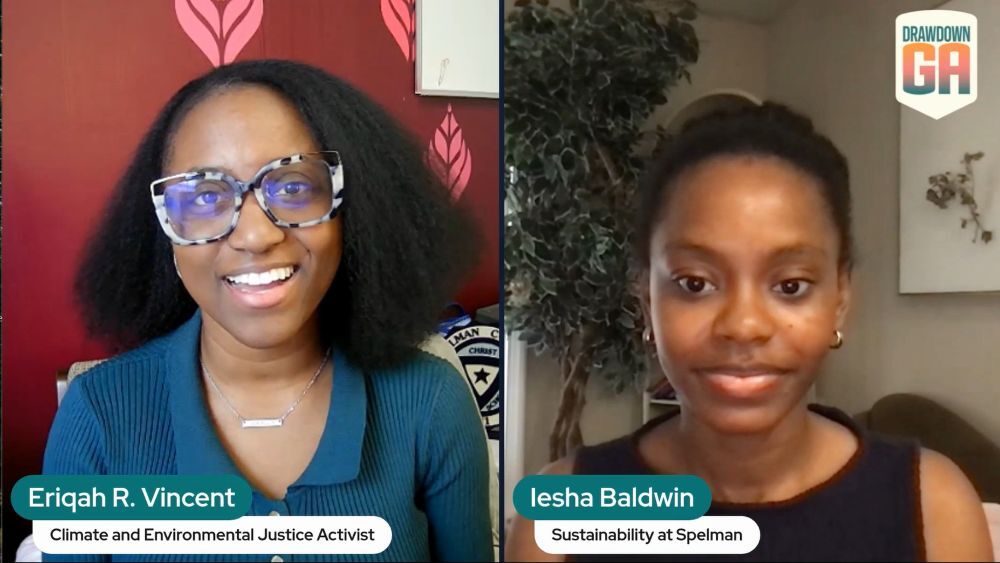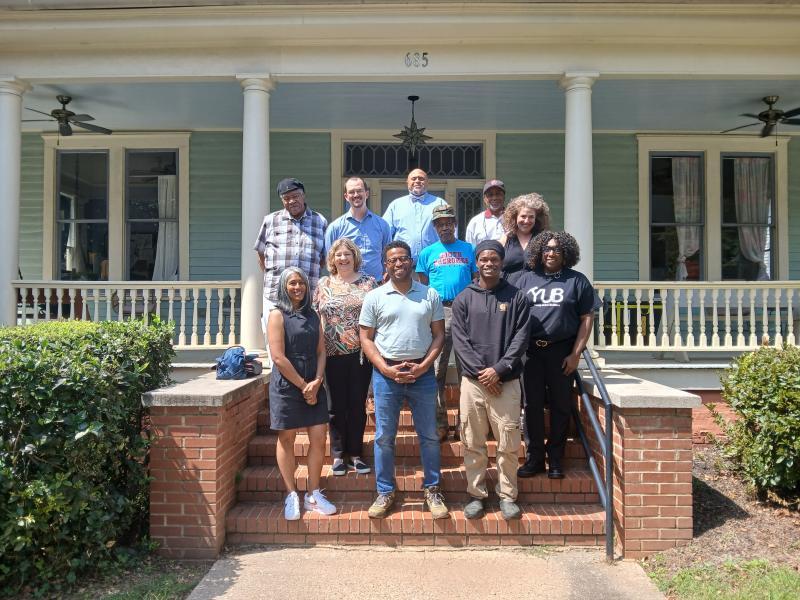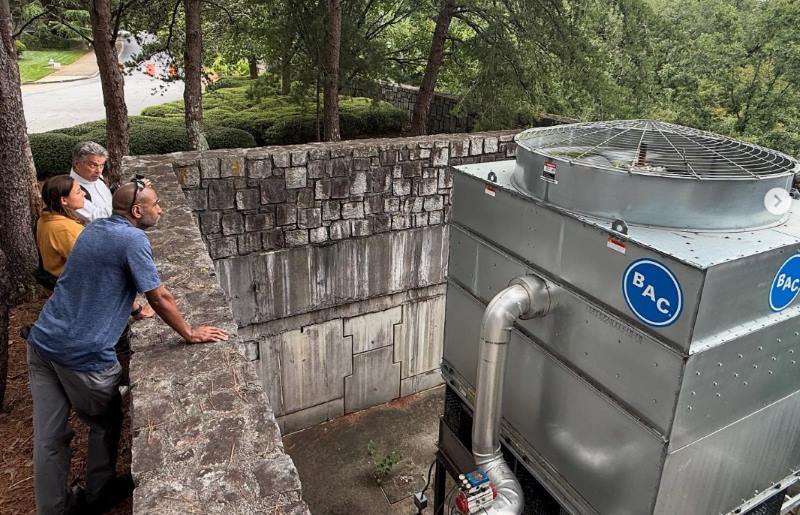“Just throw it away.” How often have you heard that old chestnut? And just where, exactly, is “away”? Surely not within throwing distance.
Let’s take a look at why throwing so many things away can have a significant impact on our environment and greenhouse gas emissions in our state--and at how you can be sure you are reducing, reusing, and recycling in Georgia most effectively to help curb emissions.
Taking a Closer Look at Trash and Where it Goes
There are entire industries working to make our unwanted stuff go “away.”
So where is “away”? Too often, away is a landfill. In the United States, landfills are usually privately owned, often massive, busy, and are never a welcome neighbor. But there are alternatives.
![]()
How Much Garbage Do We Produce?
Americans create about five pounds of garbage daily. Most of that “waste” is sent to landfills or incinerators. This is true even though a 2005 study by the Georgia Department of Community Affairs revealed nearly 40% of the waste we produce in Georgia could have been easily recycled with commonly accessible recycling collection methods.
This volume of waste is bad for the environment, as it means we fill up current landfills faster, but it’s also hurting our progress on climate. Not only do the organic materials in landfills produce methane, a potent greenhouse gas, as they break down, but we miss opportunities to reduce emissions by not recycling all that we could.
Reducing Emissions By Increasing Recycling in Georgia
Georgians lag behind the United States in terms of recycling rates, especially in paper recycling. The study cited above found that we annually throw away approximately 1.9 million tons of paper, 1 million tons of plastics, 0.36 million tons of metal, and 0.24 million tons of glass.
Significant energy savings can be achieved by more widespread recycling because producing items like plastic bottles, aluminum cans, or cardboard from recycled materials can be less energy-intensive than creating these items from new materials.
There is a huge opportunity here.
How to Recycle the Right Way in Georgia
Simple recycling is one of the easiest, most accessible, least intrusive ways to make it easier for more people to take action and help us move the needle on climate. We don’t need everyone to do everything, but we need a lot of people to do something.
With that, here are a few ground rules for effective recycling:
-
Recycling is highly localized. Checking the packaging for what is and is not recyclable where you live, work, and play is like checking USA Today for your weather. Your hauler or local municipality will have the information you need about what they do and do not accept. Check their website for more information, and call if you have more questions. They should be glad to know that you care and that you want to recycle properly.
-
If in doubt, throw it out. The most expensive, polluting way to throw anything away is to try to recycle it first, and fail. Avoid “wishcycling,” or putting items in your bin that your recycler doesn’t actually accept in the hopes that it won’t end up in the landfill. Contaminating your recyclables with items your hauler doesn’t accept creates headaches and additional costs. And these items will be sent to the landfill anyway.
-
So what is recyclable? This can vary from area to area, but here is a simple guide that applies to most curbside and drop-off recycling facilities:
-
The easiest way to think of it is to recycle paper with words printed on it and clean, empty food-grade containers.
-
Most haulers accept empty, flattened cardboard boxes, metal food and beverage cans, and empty plastic containers #1 and 2. Some accept more, such as glass and #5 plastics, depending on your local collection program.
-
Avoid the three Fs. Ask any recycling facility in the country their top three headaches, and they’ll all say, in order and on key – “plastic bags, food residue, and Styrofoam.’ Film, food, and foam – keep these out of your recyclables.
-
>>Learn more about how to reduce, reuse, and recycle right in Georgia.
How to Reduce Waste in Georgia
Let’s not forget that recycling actually comes in third on the waste reduction menu. Reducing waste and reusing items before they are thrown away can have an even bigger impact than recycling.
Reducing Consumption to Reduce Waste
So much of our waste consists of packaging. Before you buy something new, ask yourself if you really need that thing? Can you purchase one used? Or repair the one you already have?
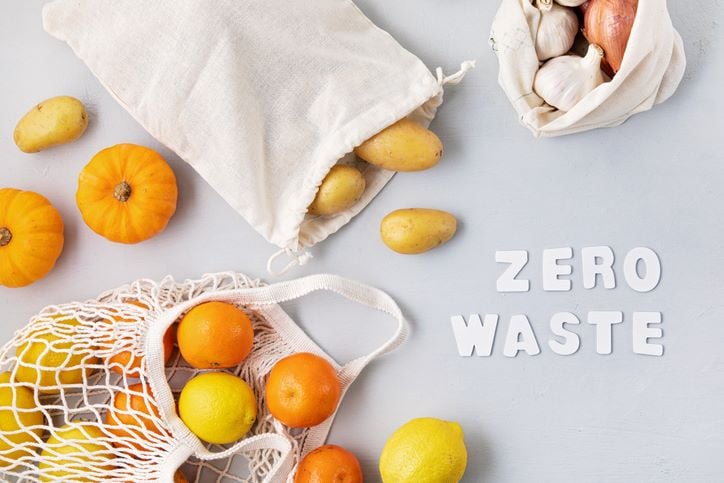
Avoiding Single-Use Items to Reduce Waste
Outside of an operating room, there is rarely a need for single-use anything. Bringing home take-out? You have ketchup in the fridge, and probably duck sauce in the junk drawer, so ask the restaurant to skip the condiments and plastic cutlery.
Reusable plates and cutlery are a good place to start, both on an individual level and at public events and markets. You may even be able to find these supplies for free or cheap in your area. Here in Athens-Clarke County, we offer zero waste kits that include reusable plates, utensils, cups, napkins, plus recycling and composting bins - all free of charge for events for up to 150 people.
Recycling is Good for Georgia
Finally, since we’re so often fed the message that consumption is somehow patriotic, I’d like to state definitively that recycling is absolutely patriotic, and is something that every proud Georgian should do. Why?
-
Many Georgia paper mills don’t gobble trees, they gobble recovered paper--and usually don’t smell as bad as conventional mills.
-
Many recycled plastic soda bottles get shipped to Northwest Georgia, the carpet capital of the world, and turned into carpet components.
-
That aluminum can might get melted down and become part of a Ford F-150 pickup truck.
Some of our recycling is exported, sure, but most of what gets collected for recycling in the South stays stateside; often right here in Georgia.
Think about it – all that scrap, at the end of the day, could be raw material for domestic manufacturing.
Learn More About Reducing, Reusing, and Recycling in Georgia
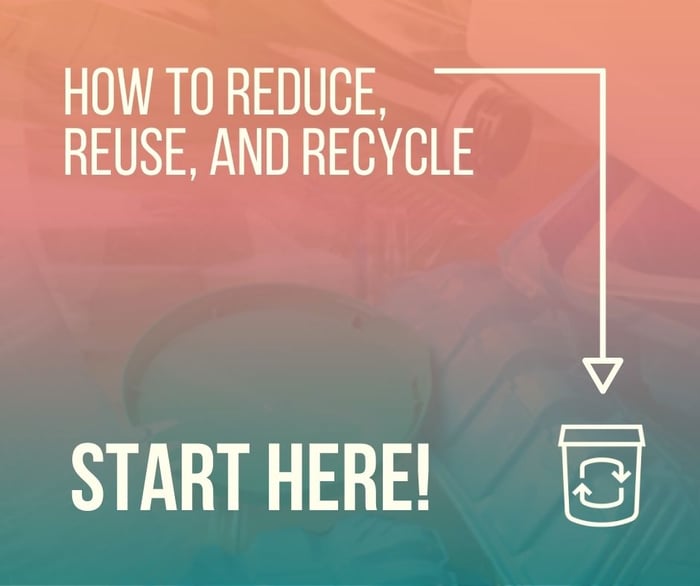
Recycling can be a satisfying and impactful way to help reduce GHG emissions on an individual level. Drawdown Georgia’s “How to Reduce, Reuse, and Recycle” Toolkit is a great resource that answers common questions about recycling, and can help you take action at home and in your community.




